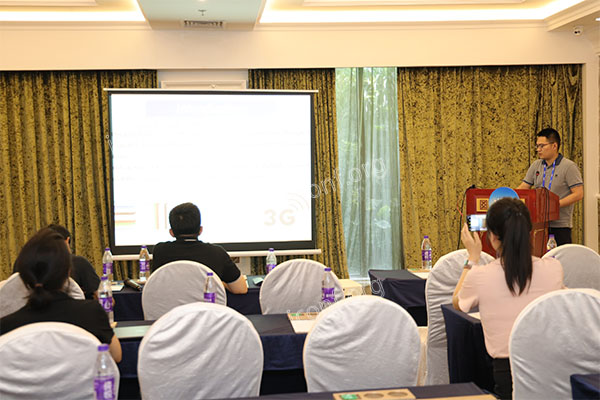In today’s interconnected world, the study of networks—be it in telecommunications, data communication, or complex network science—has become essential for advancing technology and understanding global systems. Responding to a Networks Call for Papers (CFP) is a strategic opportunity to showcase your innovative research, gain international exposure, and contribute to the evolution of network technologies.

Global Visibility and Recognition
International Exposure: Present your research to a global audience of experts, industry leaders, and academic peers.
Enhanced Impact: Strengthen your academic profile by sharing breakthrough findings and innovative methodologies in network science.
Fostering Collaboration and Innovation
Networking Opportunities: Connect with like-minded researchers and potential collaborators, paving the way for interdisciplinary partnerships.
Driving Technological Advances: Contribute to the development of next-generation network solutions, from 5G/6G technologies to advanced data communication systems.
Constructive Feedback and Continuous Improvement
Expert Review: Benefit from rigorous peer review processes that provide constructive feedback and help refine your research approach.
Professional Growth: Use the insights gained to enhance your work and stay at the cutting edge of network research.
1. Thoroughly Understand the CFP Guidelines
Detailed Review: Carefully read the CFP document to ensure your research aligns with the conference’s themes, such as network protocols, data communication, cybersecurity, or complex systems.
Compliance: Adhere to the specified formatting, citation, and submission requirements to avoid technical rejections.
2. Craft a Compelling Abstract
Concise and Informative: Summarize your research objectives, methodology, key findings, and potential impact in a clear, succinct abstract.
Keyword Integration: Naturally incorporate targeted keywords such as “network science” and “telecommunications innovation” to improve search engine optimization (SEO).
3. Organize Your Manuscript Effectively
Structured Format: Utilize the IMRaD (Introduction, Methods, Results, Discussion) structure to present your work logically and coherently.
Visual Enhancements: Include high-quality figures, charts, and diagrams to clearly illustrate your data and support your conclusions.
4. Emphasize Originality and Practical Impact
Innovative Contributions: Clearly articulate how your research advances the field by introducing novel ideas, techniques, or applications in network science.
Real-World Applications: Discuss the practical implications of your findings, such as improvements in network efficiency, reliability, or security.
5. Ensure Professional Presentation
Editing and Proofreading: Use professional editing services to polish your manuscript, ensuring clarity and error-free content—especially if English is not your first language.
Strict Adherence: Follow all CFP instructions meticulously, including formatting and citation guidelines.
For researchers in network science, iconf.org offers a wealth of resources to maximize your CFP submission and academic impact:
Curated CFP Listings: Quickly access a comprehensive database of international Networks CFPs without the need to search multiple sites.
Expert Submission Guidelines: Benefit from detailed tips and best practices tailored to the demands of network research.
Global Networking Opportunities: Connect with a vibrant community of scholars, industry professionals, and experts from around the world.
Integrated Academic Resources: Explore high-quality academic papers, journals, datasets, and tools that support your research and enhance your presentations.
Responding to a Networks Call for Papers is your gateway to showcasing innovative research and contributing to the global advancement of network science. By following best practices in manuscript preparation, crafting a compelling abstract, and leveraging the robust support available on iconf.org, you can significantly boost your research impact and join an international community of experts dedicated to shaping the future of communications and complex systems.
Take the next step in your academic journey—prepare your CFP submission today and let your research pave the way for breakthroughs in network science. Visit iconf.org now to explore additional resources and unlock new opportunities for academic excellence and collaboration.